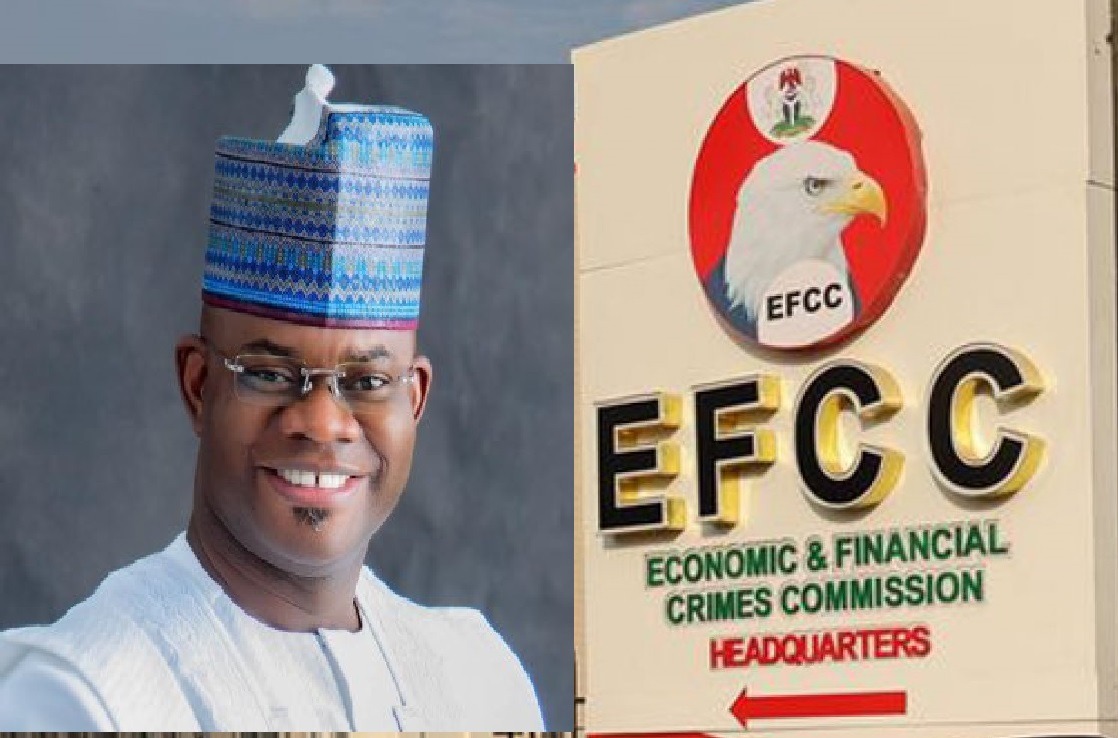In a momentous legal development, the Economic and Financial Crimes Commission (EFCC) has modified corruption allegations, asserting a fraudulent diversion of approximately N100 billion belonging to the Kogi State government in September 2015. Former Kogi State Governor Yahaya Bello is implicated as a co-defendant in the revised indictment, illuminating purported financial mismanagement preceding his tenure.
The revised indictment, presented before Justice James Omotoso at the Federal High Court Abuja, accuses former Governor Yahaya Bello, along with Ali Bello, Chief of Staff to the current Kogi State Governor, and Daudu Suleiman, of redirecting state funds months before Yahaya Bello assumed office.
During the court proceedings, Ali Bello and Dauda Suleiman pleaded not guilty to the seventeen-count revised indictment. However, their legal representatives objected to the reading of the amended charge, citing a lack of prior service of the document.
In response, EFCC counsel Rotimi Oyedepo urged the court to dismiss the defendants’ contentions, stressing the necessity for expedited legal proceedings. Justice James Omotoso reiterated his dedication to accelerated hearing in the case and directed that objections be postponed until the address stage, with the indictment to be recited to the defendants.
The revised corruption allegations underscore the EFCC’s ongoing endeavors to combat financial malfeasance and hold individuals accountable for purported acts of corruption. The inclusion of former Governor Yahaya Bello in the allegations accentuates the breadth of the investigation and the agency’s resolve to pursue justice irrespective of political affiliations or stature.
The legal proceedings emphasize the significance of due process and the supremacy of the law in addressing allegations of corruption and financial wrongdoing. Both the prosecution and the defense are afforded opportunities to present their contentions and ensure equitable adjudication of the matter.
The accusations of state fund diversion evoke apprehensions about fiscal responsibility and transparency in governance, underscoring the necessity for robust mechanisms to forestall and uncover corruption at all echelons of government.
The legal dispute surrounding the revised corruption allegations is poised to attract considerable scrutiny as it evolves. Stakeholders, including the populace and civil society entities, will closely monitor the proceedings to ensure that justice is dispensed and accountability maintained.
As the case advances, the verdict will carry ramifications not only for the defendants but also for broader endeavors to combat corruption and foster good governance in Nigeria. The EFCC’s pursuit of accountability sends a resolute message about the significance of integrity and ethical comportment in public service.




